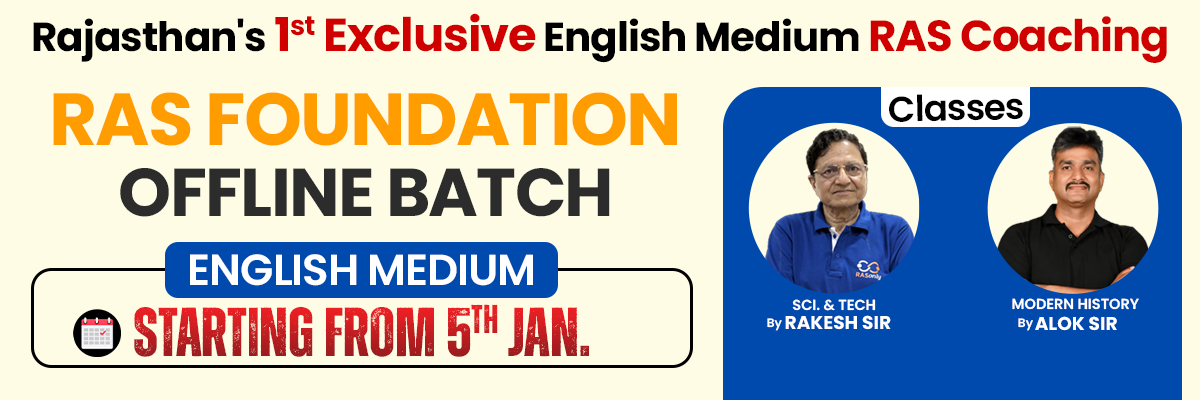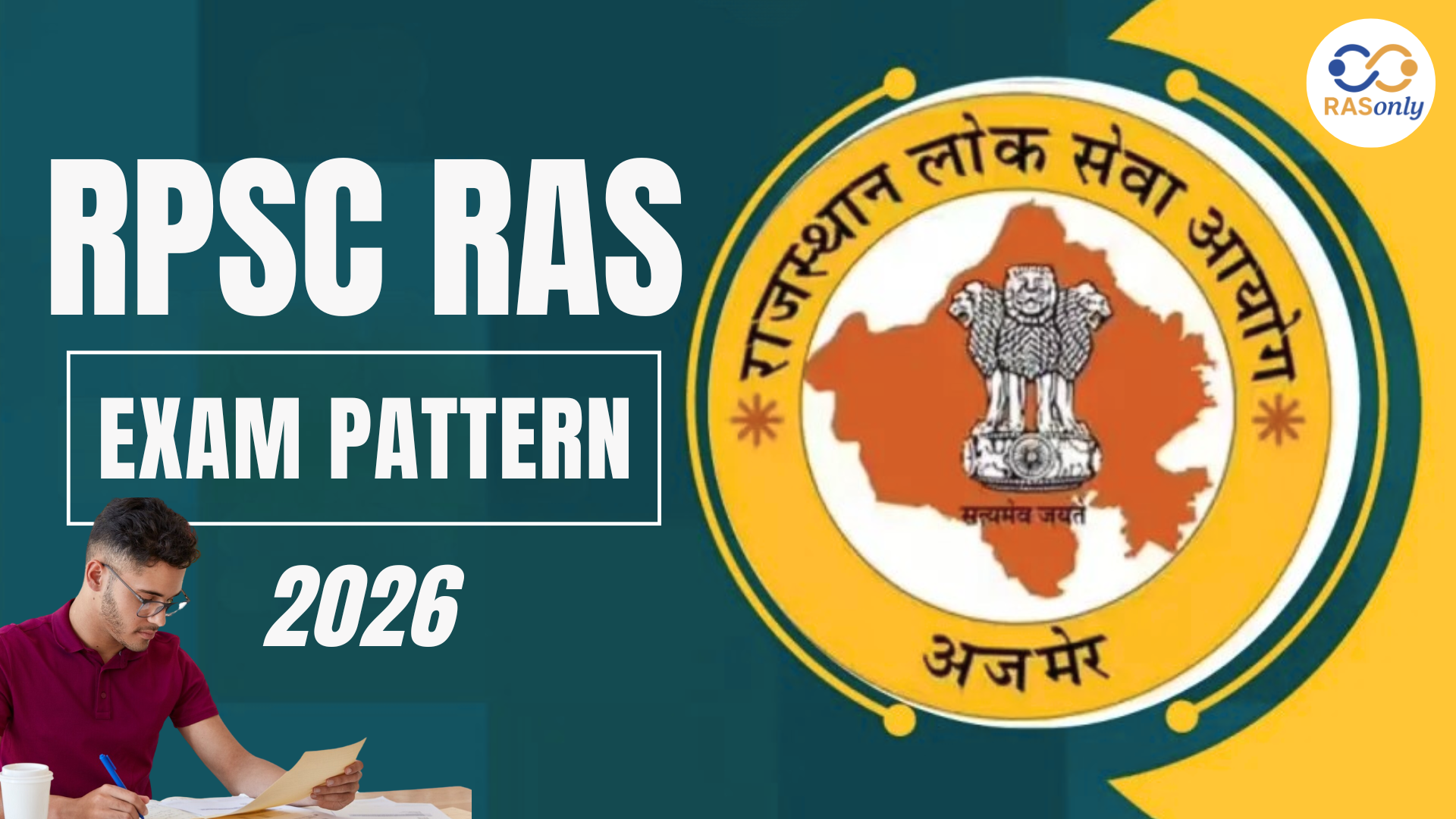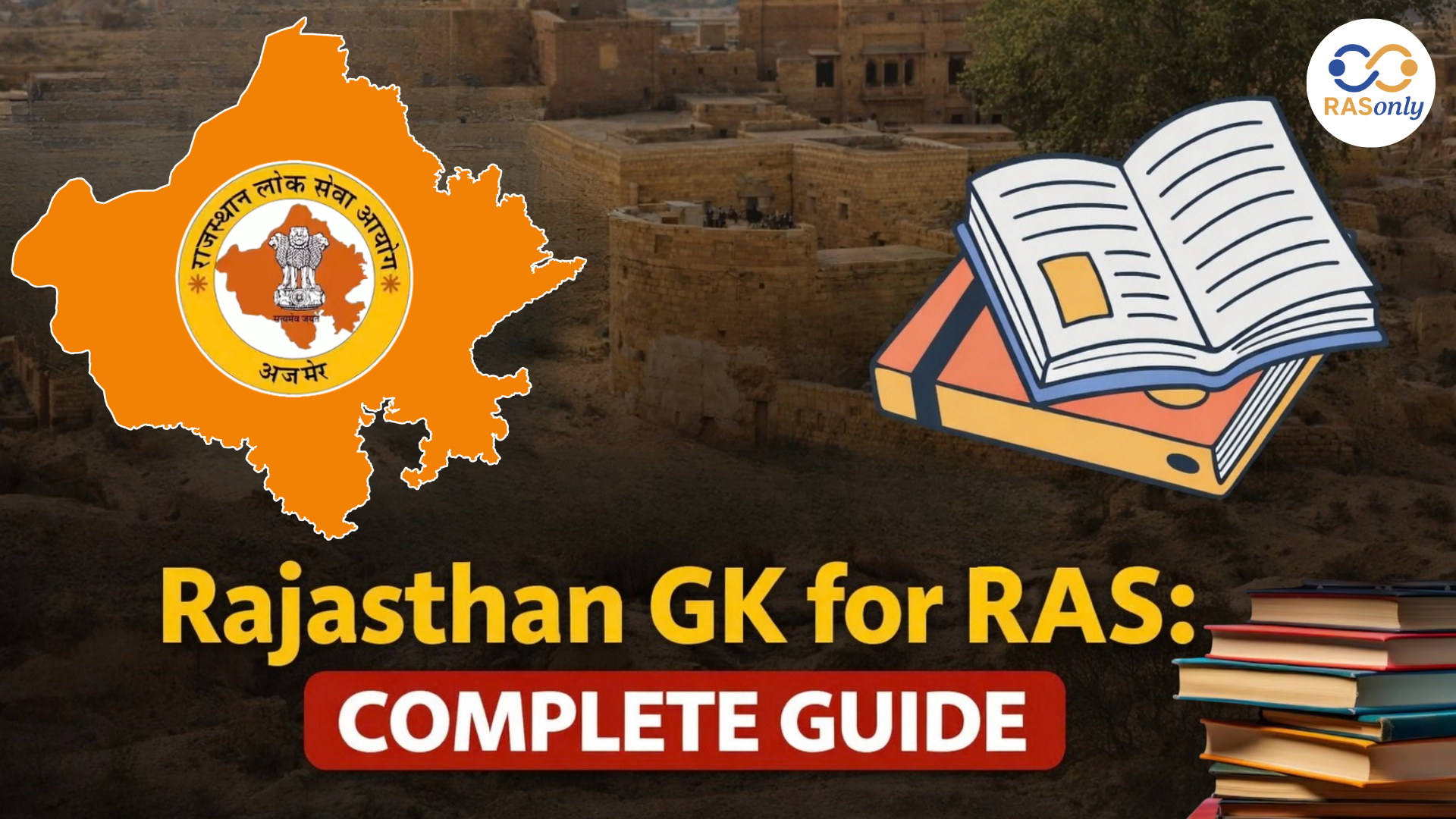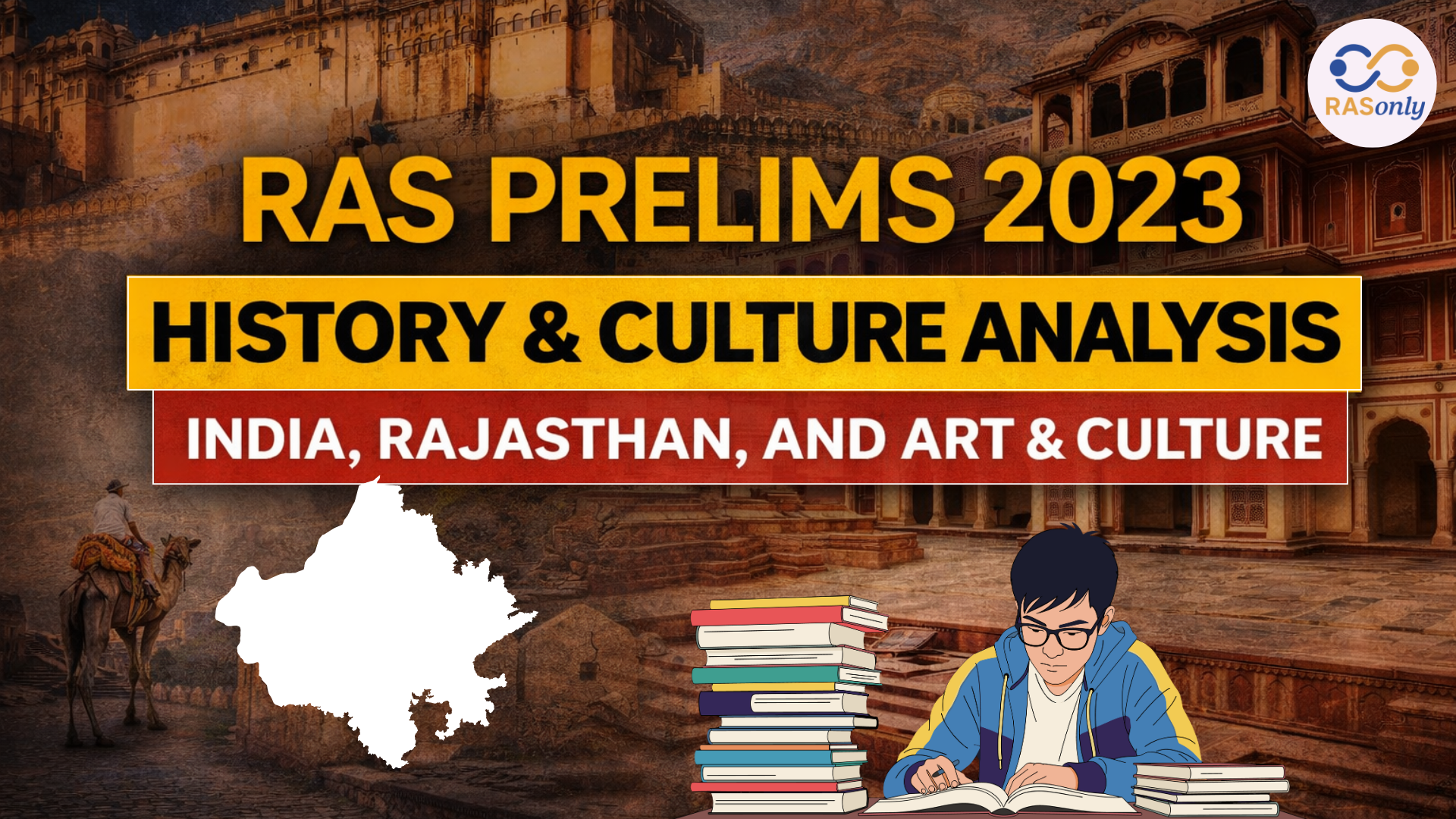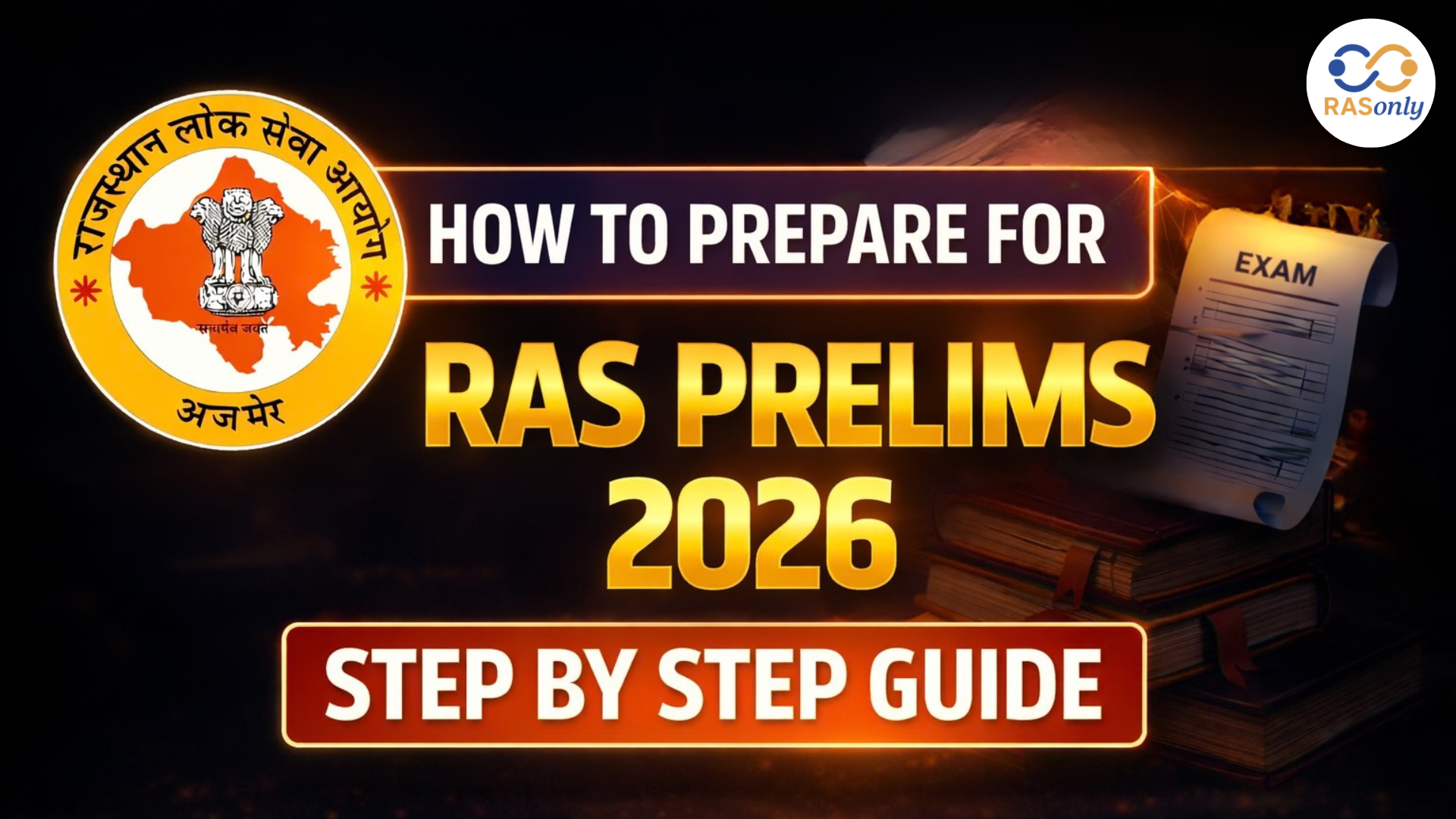RPSC RAS 2026 Subject Wise Exam Pattern for Prelims, Mains & Interview Details
- >
- RAS Preparation Resources
- >
- Gandhian Ethics
Gandhian Ethics

Get in Touch with RASonly!

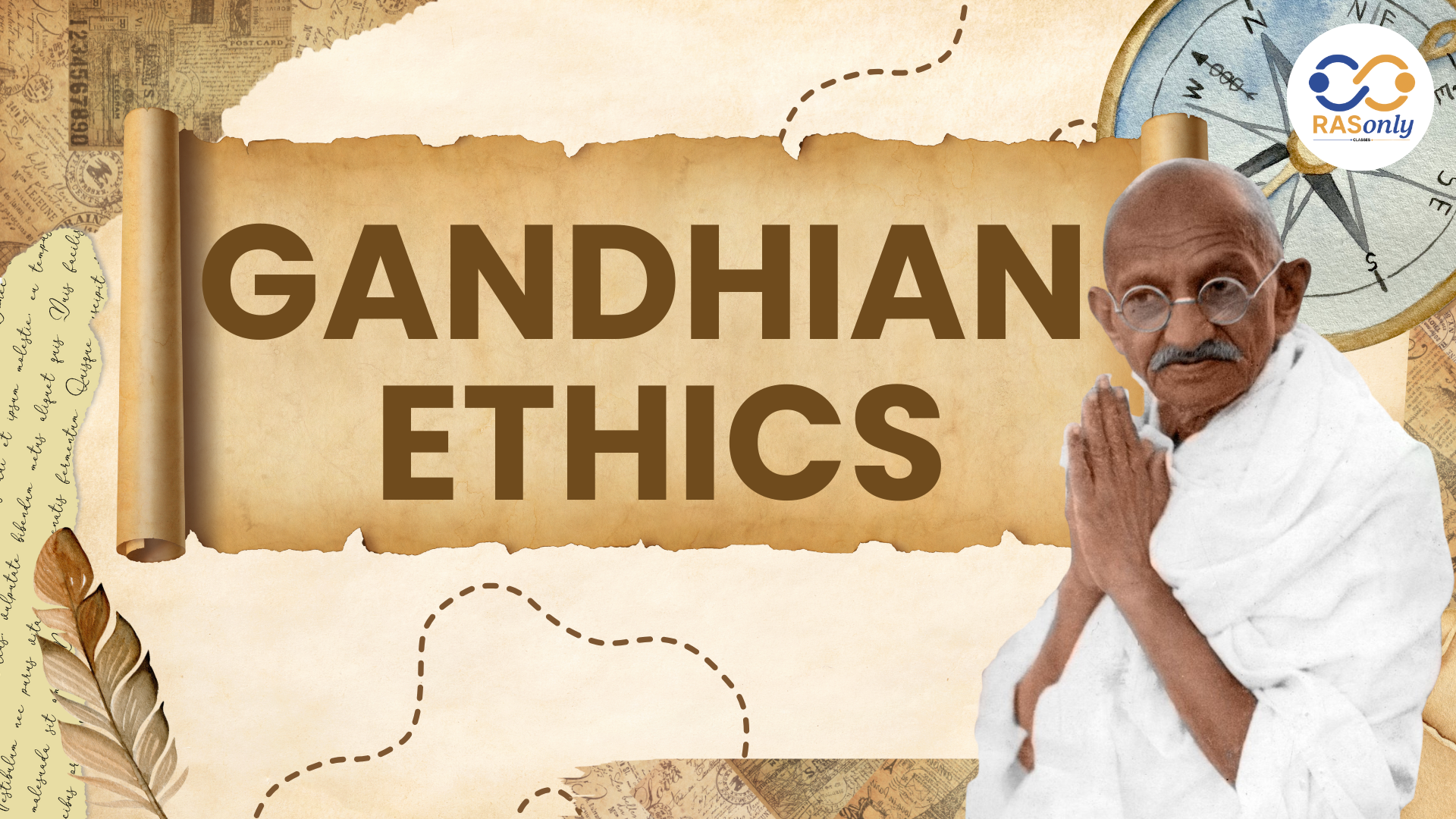
The philosophy of Gandhi is based on truth, non-violence, and moral discipline that Gandhi was prompted by his experiences in life and also his spiritual leadership. The key ideas are Satyagraha, trusteeship, self-reliance, and dignity of labour and its influence is the creation of an ethical, just and non-exploitory society. Gandhi said that noble ends should be justified through pure means and this opposes violence, injustice and greediness. The central theme of his economic vision was decentralization, Swadeshi and welfare of all (Sarvodaya). Gandhi did not find answers to the problem of inequality and conflict in the world which we live in today, but his concepts of peace, tolerance and living in a sustainable way have never lost their meaning.
Key Points for RAS Mains
What is Gandhian Philosophy?
- Gandhianism has its basis on the principle of simple living and high thinking. It is a complete ideology that is influenced by spiritual beliefs of Gandhi, his experiences in South Africa, and the movement to freedom in India.
- His unspoken message consists of truth (satya) and non-violence (ahimsa). His ethical vision was augmented by influences of thinkers such as Tolstoy, Thoreau, etc., and religious writings.
- Being what may appear to be a simple task, Gandhian practices are highly self-disciplinary and morally demanding.
Gandhian Philosophy Principal
1. Truth (Satya)
- To Gandhi truth was the highest reality and the ultimate source of morality.
- It entails the following in theory, speech and deeds.
- Gandhi identified the God with truth and this was the centre of Satyagraha.
- Truth is a view relative to one's own perception, and it has to be sought truthfully.
- Truth may never hurt an unjust cause;- “Truth may not wrong An unjust cause.”
2. Non-Violence (Ahimsa)
- Truth and non-violence go together and are a formidable force instead of an ordinary force.
- There is social unrest triggered by passive and physical violence.
- Ahimsa was an active approach formulated by Gandhi to political resistance.
- Genuine non-violence consists in taking in suffering and not striking back.
- Non-violence is a strong weapon of strength.
3. Moral Action
- A morally correct action becomes intentional, non-egotistical, universal and unafraid.
- Aspects of moral life: tranquility, selflessness, purity, or rather inner tranquility.
- Things are based on morality and all morality is based on the truth.
4. Gandhian Economics
- Proponents of simplicity, self sufficiency and trusteeship.
- Insists on decentralization, Swadeshi, and cooperative living, and equality.
- Seeks to address labor-related, capital, and fair sharing problems.
5. Sarvodaya (Welfare of All)
- Refers to universal elevation society founded on liberty, fraternity and equality.
- Makes no demand for exploitation, competition and class struggle.
6. Means And Ends
- Means have to be pure like the goals; there cannot be justifications of morally corrupt means towards the most noble goals.
- Result oriented choices pale compared to ethical choices.
- The instrument, says a proverb, is the measure of the work also.
7. Dignity of labour
- Manual work is regarded as sacred and necessary in the independence.
- All have to honor and take part in physical work without any humiliation.
8. Satyagraha
- The abbreviation means the truth-force or moral opposition to wrongdoing.
- It is a non-violence means of protest founded on heroism and truth.
- Was successfully used in the Indian struggle of freedom.
9. Tolerance
- The real tolerance not only tolerates but respects different beliefs.
- Promoted inter-religious peace and tolerance.
10. Doctrine of Trusteeship
- Wealth should be handled by the rich so that it can serve the interests of the society.
- Encourages ethical capitalism and good leadership.
- Industrialists such as J.R.D. Tata has practiced it.
Gandhi’s Seven Deadly Sins (With Examples)
|
Sin |
Meaning & Example |
|
Wealth Without Work |
Earning unethically, e.g., untaxed profits or speculation. |
|
Pleasure Without Conscience |
Enjoyment at others' cost, e.g., harassment or consumerism. |
|
Knowledge Without Character |
Misusing expertise, e.g., illegal medical practices. |
|
Science Without Humanity |
Technology that harms humanity, e.g., nuclear weapons. |
|
Commerce Without Morality |
Profit-driven business, e.g., food adulteration or false advertising. |
|
Worship Without Sacrifice |
Religion without service, e.g., spiritual leaders indulging in luxuries. |
|
Politics Without Principle |
Power without ethics, e.g., corruption and horse-trading in politics. |
Quotes of Mahatma Gandhi
- “Earth provides enough to satisfy every man’s needs, but not every man’s greed.”
- “Happiness is when what you think, what you say, and what you do are in harmony.”
- “The best way to find yourself is to lose yourself in the service of others.”
- “The weak can never forgive. Forgiveness is the attribute of the strong.”
Modern applicability of Gandhi thought
- In a world gone mad in violence (e.g.: Russia-Ukraine, Israel-Palestine), a non-violent world is becoming an urgent requirement.
- His vision of decentralized democracy can be seen in the forms of Panchayati Raj and local India.
- Swachh Bharat Abhiyan shows his interest in cleanliness and civic nationhood.
- His sustainable development philosophy, i.e.: The earth provides enough to satisfy the need of man but not greed, fits into the climate targets.
- The polarizing world dominated by religious and cultural issues is where tolerance and inclusivity stay critical.
Conclusion for RPSC
The philosophy of Gandhi goes beyond the tradition and is a guide to a confused world. His message of truth, non-violence and ethical living can help to model the modern societies to peace, sustainability and social justice. The route taken by Gandhi would perhaps be tough but the most human and humane path ahead
Post Category
- RAS Salary
- Result
- RAS Admit Card
- RAS Job
- RAS Cutoff
- Preparation Tips
- RAS Answer Key
- RAS Exam Analysis
- RAS Syllabus
- RAS Previous Year Papers
- RPSC RAS Exam Pattern
- RAS Interview
- RAS Mains Exam Date
- RAS Vacancy
- RAS Test Series
- RAS Best Books
- RAS Preparation Resources
- RAS Coaching Centre
- History
- Polity
- Geography
- Economics
- Science
- Art and Culture
- RPSC RAS Application Form
- RPSC RAS Notification
RASonly Interview Guidance Program

Mr. Ashok Jain
Ex-Chief Secretary Govt of Rajasthan
- IAS officer of the 1981 batch, Rajasthan cadre.
- Passionate about mentoring the next generation of RAS officers with real-world insights.
- Got retired in Dec 2017 from the post of Chief Secretary of the state of Rajasthan.

Mr. Guru Charan Rai
Ex-ASP / SP in Jaisalmer
- Guru Charan Rai, IPS (Retd), retired as Inspector General of Police (Security), Rajasthan, Jaipur in 2017.
- Served as ASP and SP in Jaisalmer, Nagaur, Sri Ganganagar, Sawai Madhopur, Dausa, Sikar, and Karauli.
- He also held key positions as DIGP and IGP in the Law and Order division.

Mr. Rakesh Verma
Ex-IAS Officer, B.Tech, MBA, and M.A. (Economics)
- IAS officer of the 1981 batch and retired in Chief Secretary Rank.
- Civil servant of high repute and vast experience.
- Has been teaching UPSC CSE subjects for the last six years.
Related Post
Daily Current Affairs for RAS Exam Preparation 2026
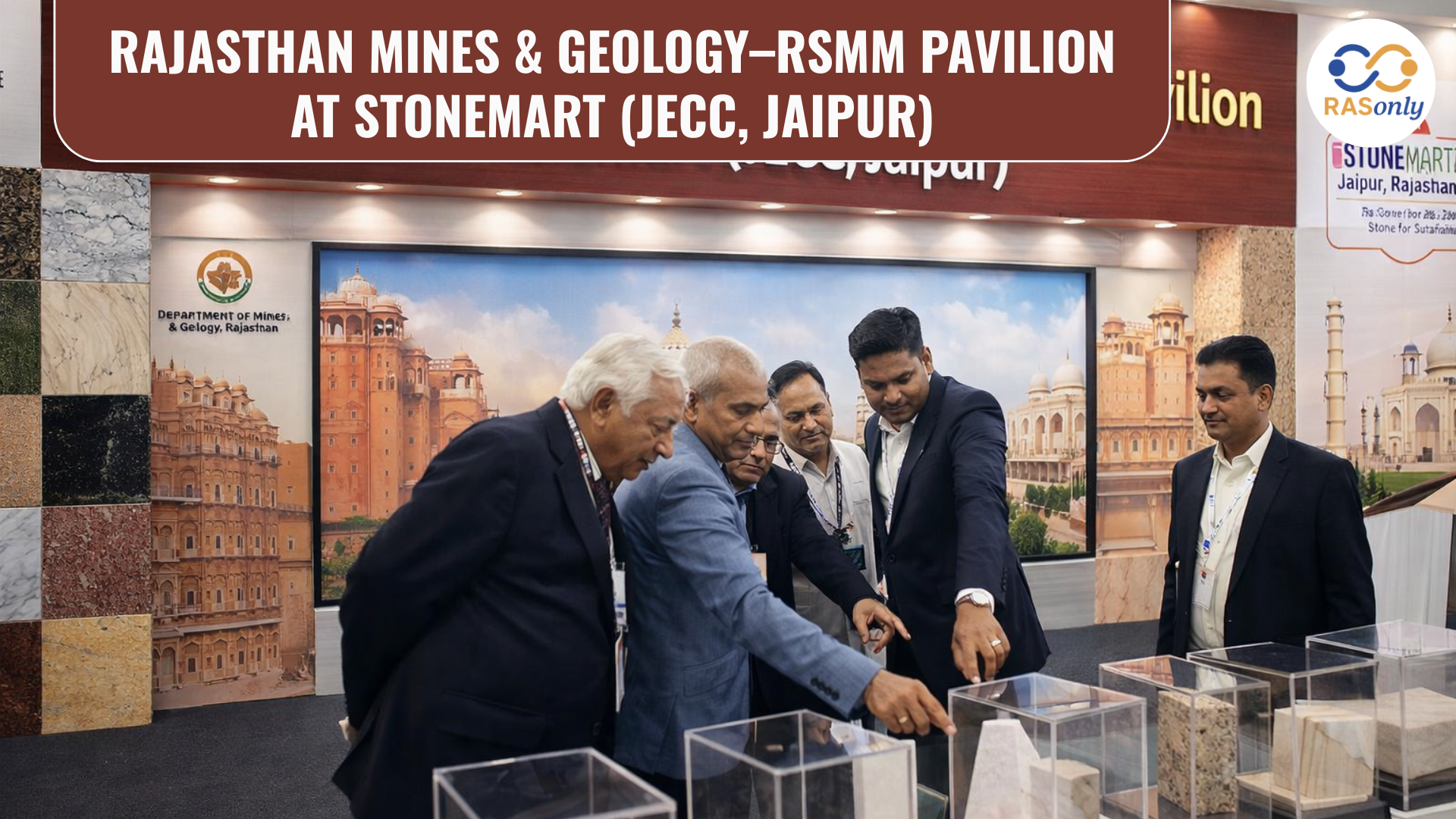
Rajasthan Pavilion Shines at Stone Mart Jaipur 2026
February 07, 2026
Rajasthan Achieves 3,000 MW Under PM-KUSUM Scheme
February 07, 2026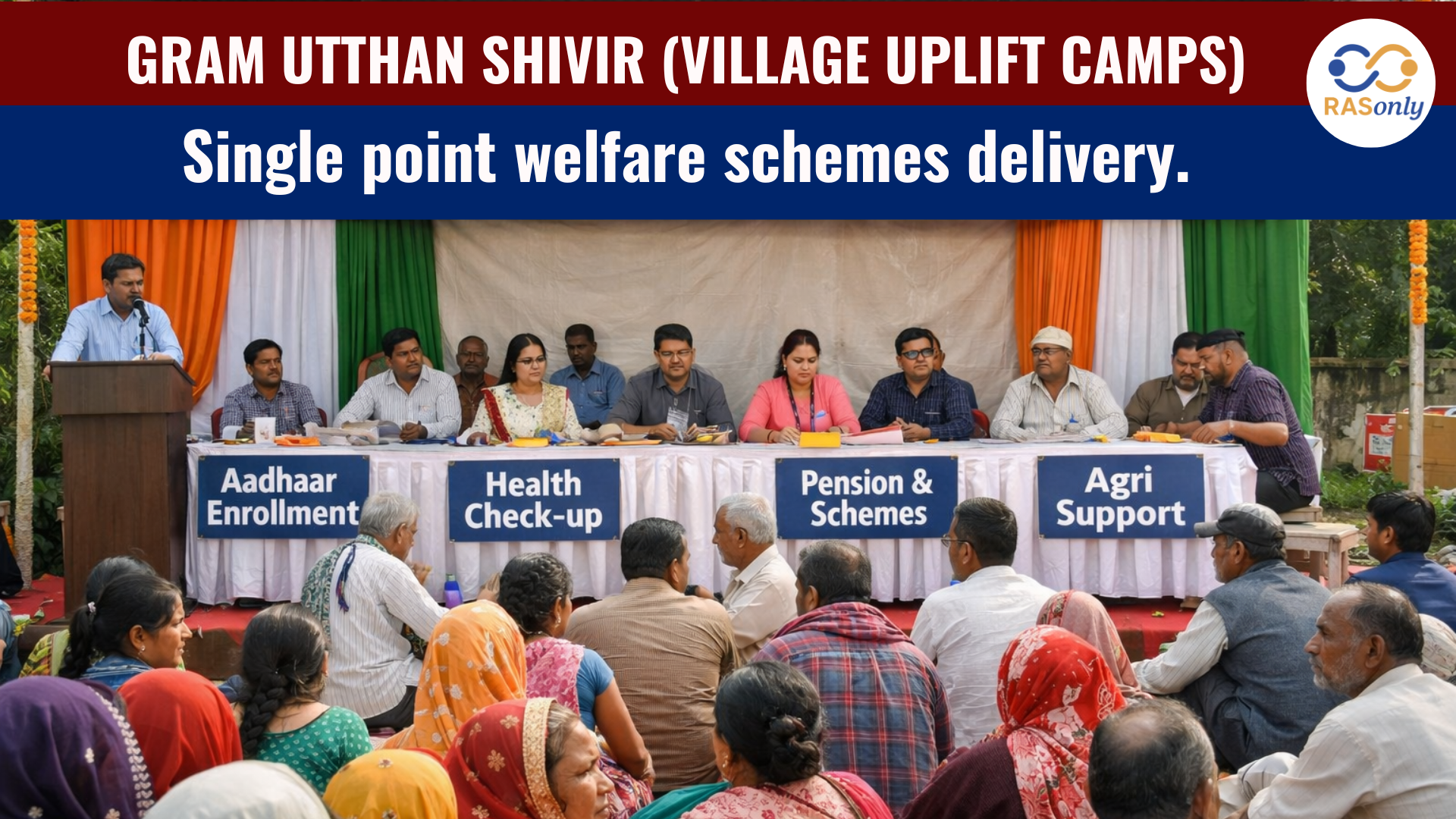
Gram Utthan Shivirs Strengthen Rural Governance in Rajasthan
February 07, 2026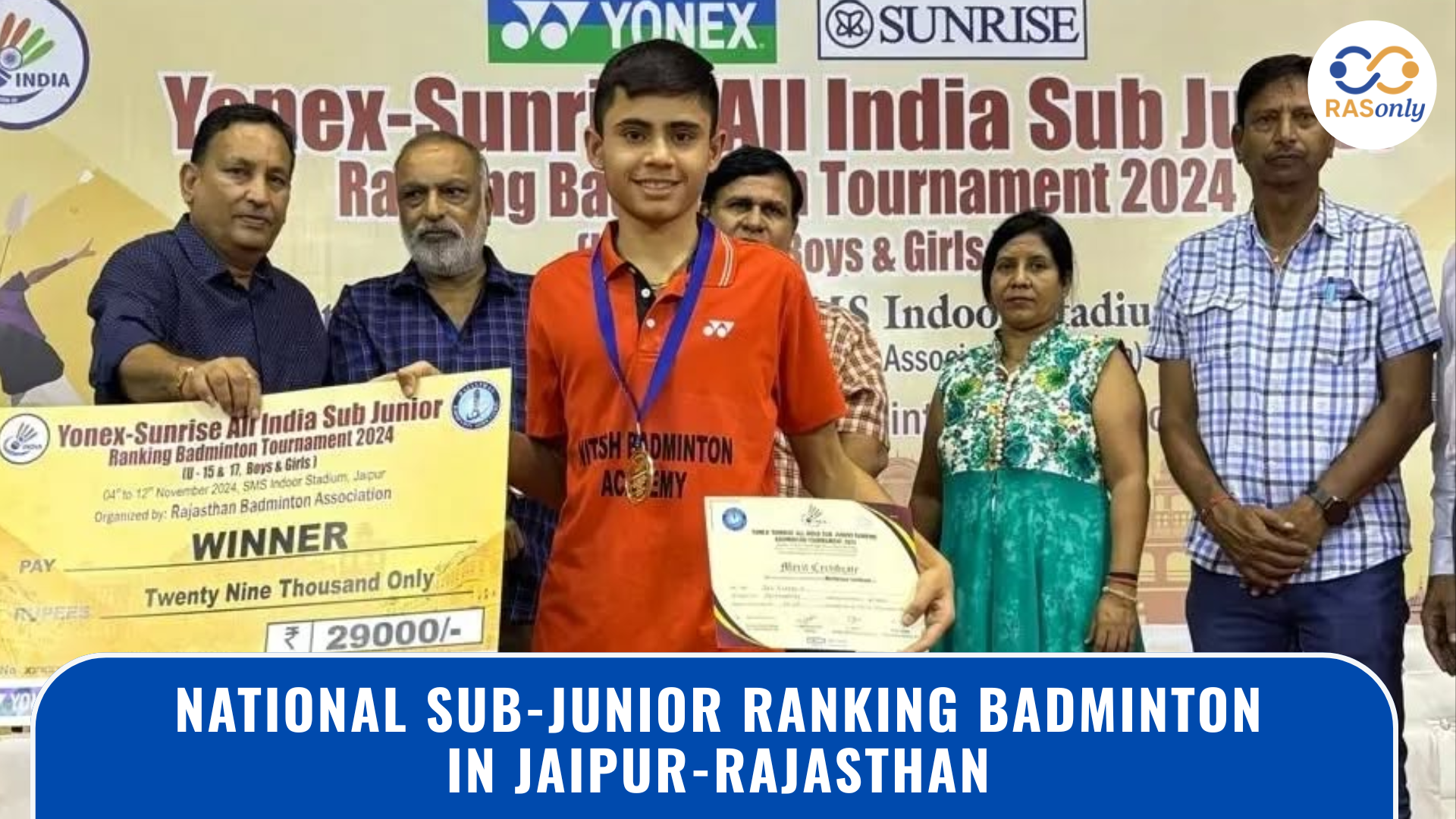
Jaipur Badminton: 72-Minute U-15 Final Creates Record
February 06, 2026👉🏻 Register Today to Join Classes! 👍🏻
- Team RASOnly -
🎯 Benefits of RASOnly Coaching:
- ✅ 1:1 Mentorship with RAS Officers
- ✅ Experienced and Expert Faculty
- ✅ Free Library Access
- ✅ Daily Minimum 4 Hours Must
- ✅ Comprehensive Study Material
- ✅ Regular Tests & Performance Analysis
- ✅ Personalized Guidance & Doubt Solving
- ✅ Online & Offline Class Options
- ✅ Affordable Fees with Quality Education
Key Highlights:
- 👉🏻 3-Day Refund Policy
- 👉🏻 New Batch Starting from 04 August
- 👉🏻 Registration Amount: Only ₹1000




